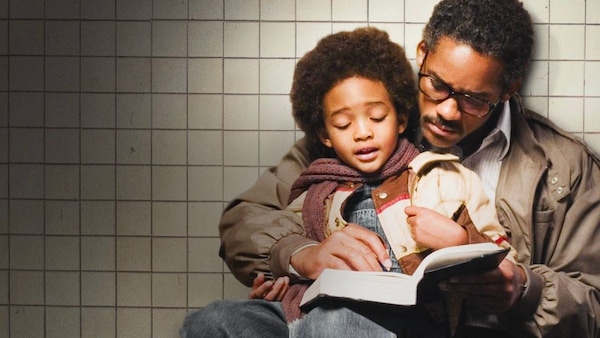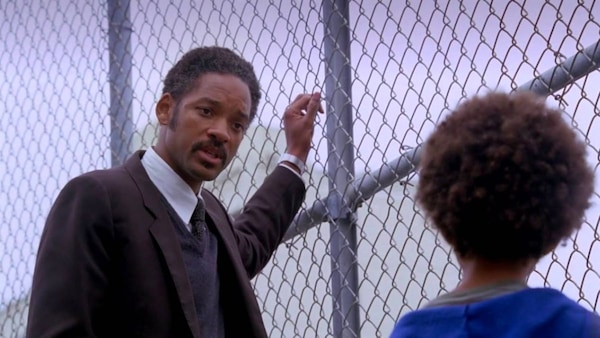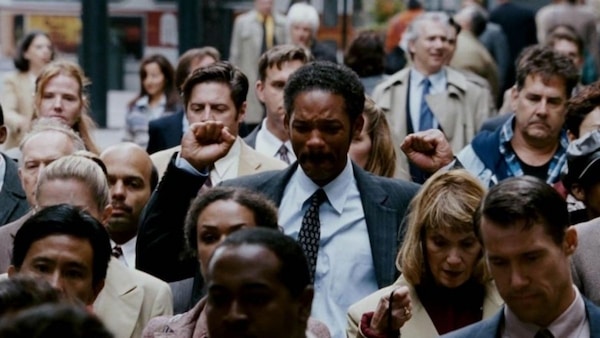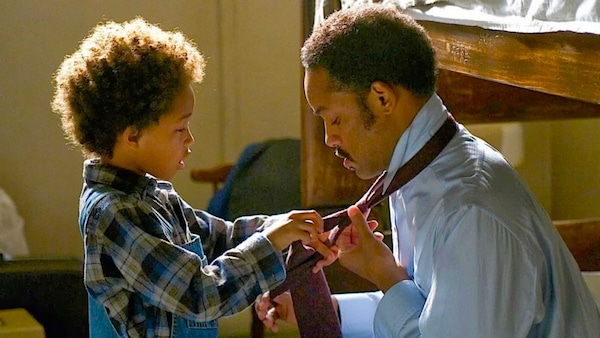The Pursuit of Happyness: An inspiring story of hope, poverty and the American Dream
Will Smith’s poignant narrative on fatherhood and togetherness brought to the world yet another tale of love.

Last Updated: 02.48 PM, Dec 22, 2021
The Pursuit of Happyness is based on the true story of US multi-millionaire Chris Gardner (played by Will Smith) as he overcame all life challenges such as homelessness and separation. The financially broke salesman takes custody of his son and gets ready for a life-changing professional career against all odds.
Gardner was a man who became very wealthy by creating a successful stock brokerage firm. However, things were not smooth sailing initially and he was faced with several challenges in his early life. Tired of his professional failures, his wife (played Thandie Newton) leaves him and his son in desperate times. Meanwhile, Gardner, being naturally good with numbers, manages to get an unpaid internship at a top brokerage firm. During the training period, Gardner is thrown out of his apartment for not paying his rent. The film depicts him and his son spending their night at homeless hostels as they struggle to make ends meet.
On a rooftop basketball court, Chris tells his son, “Don’t ever let somebody tell you that you can’t do something.” The monologue may sound cheesy to some, but the conviction behind those words alongside the touching back story gives the speech new life. The Pursuit of Happyness expertly portrays a man who finds hope when he reaches rock bottom.

In the film’s most iconic scene, Chris Gardener barricades himself and his son Christopher inside a subway men’s restroom so that they can sleep through the night safely. As he keeps his son seemingly away from harm’s way, Chris manages to preserve his son’s innocence by telling him that they have travelled back in time and that they are fleeing from dangerous dinosaurs, all while somehow holding back his tears. This particular scene successfully sums up the entire narrative of hope and struggle.

The Pursuit of Happyness is a film with a strong message about society and the American Dream. This emotional tale of fatherhood, poverty and the preservation of innocence moved audiences everywhere and garnered widespread critical acclaim. The portrayal of the gut-wrenching scenes on the streets is executed in a way that makes the viewers feel genuinely uneasy and emotional throughout its almost two-hour runtime.

However, the film is not without its share of imperfections. The main criticisms of the film stem from the fairly predictable story and the obvious lack of subtlety. Director Gabriele Muccino relies heavily on a Rubik’s Cube metaphor to symbolise intelligence, rich-looking cars to represent power and bright lights to symbolise hope. Furthermore, there is no real suspense in the film because it is taken for granted that Chris will overcome all obstacles that lie before him and become successful.

The film is also a mouthpiece for the ‘American Dream’. Through Chris, Muccino develops a character that truly embodies the principles of the Declaration of Independence, which states that the only way to success is through continuous effort, perseverance, and determination, rather than the vague dependence on social status and class. The very notions of hard work and its inevitable returns are so deeply embedded within the film, that it becomes almost impossible to ignore what Muccino wants to write home about. Smith’s body of work speaks nothing of subtlety and The Pursuit of Happyness is no exception either.
Despite these minor criticisms, The Pursuit of Happyness continues to be a quality drama film with excellent acting and beautifully depicted emotional events.
Watch the film here .

